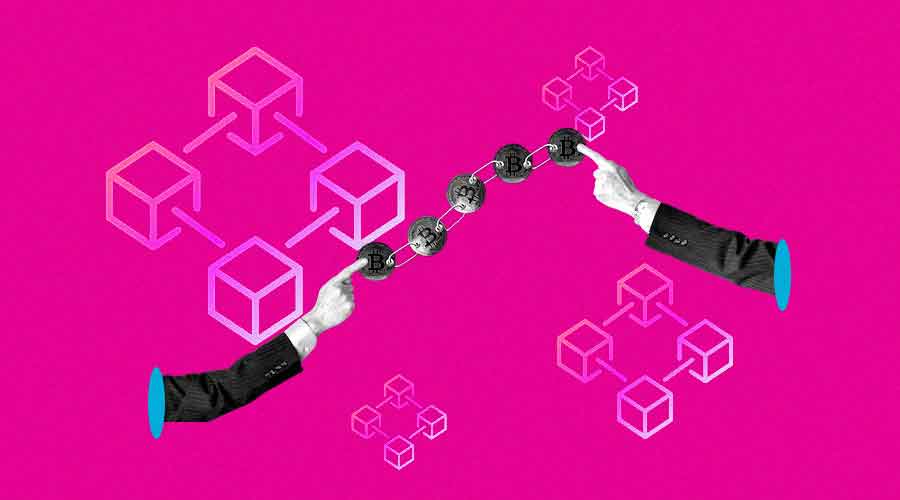 Catalysts of Change: Exploring the Top 10 Practical Uses of Blockchain Technology
Catalysts of Change: Exploring the Top 10 Practical Uses of Blockchain Technology
The advent of blockchain technology has heralded a new era of innovation, disrupting traditional systems and industries across the globe. Originally conceived as the underlying technology for cryptocurrencies, blockchain has rapidly evolved into a versatile and transformative force with a myriad of practical applications. In this exploration of the “Top 10 Practical Uses of Blockchain Technology,” we embark on a journey to unveil the remarkable ways in which blockchain is reshaping our world.
Beyond the realm of digital currencies, blockchain’s immutable, decentralized ledger has found its footing in industries as diverse as supply chain management, healthcare, and real estate. It has birthed the concept of smart contracts, revolutionized identity verification, and even holds the potential to redefine the way we conduct elections. Join us as we delve into these real-world use cases, each a testament to the limitless potential of blockchain technology in revolutionizing the way we transact, communicate, and secure our digital future
1. Cryptocurrencies and Digital Payments
Blockchain’s most well-known application is in the realm of cryptocurrencies. Bitcoin, Ethereum, and numerous altcoins have gained popularity as digital currencies built on blockchain technology. Blockchain ensures secure, transparent, and immutable transactions, making it an ideal foundation for digital payments and enabling financial inclusion on a global scale.
2. Supply Chain Management
Blockchain is revolutionizing supply chain management by providing an immutable and transparent ledger for tracking goods from production to delivery. This technology helps prevent fraud, counterfeiting, and ensures the authenticity of products. Companies can trace the origin of goods, enhance efficiency, and improve accountability throughout the supply chain.
3. Smart Contracts
Smart contracts are self-executing agreements with the terms of the contract directly written into code. They automatically execute and enforce contractual obligations when predefined conditions are met. This eliminates the need for intermediaries, reducing costs and increasing trust in various industries, such as real estate, insurance, and legal services.
4. Identity Verification
Blockchain offers a secure and decentralized solution for identity verification. Individuals can have control over their personal information, providing selective access to trusted parties without relying on centralized authorities. This use case has the potential to eliminate identity theft and streamline verification processes in sectors like healthcare and finance.
5. Voting Systems
Blockchain can enhance the security and transparency of voting systems. By recording votes on an immutable ledger, it can eliminate voter fraud and increase confidence in electoral processes. Some governments and organizations are exploring blockchain-based voting solutions to ensure fair and verifiable elections.
6. Healthcare Data Management
Managing sensitive healthcare data is a complex challenge, but blockchain can provide a solution. Patients can have secure access to their medical records, grant permission for healthcare providers to access their data, and ensure the integrity and privacy of health information. This can improve patient care, research, and overall healthcare efficiency.
7. Intellectual Property Protection
Protecting intellectual property rights is crucial in the digital age. Blockchain enables creators to timestamp their work and prove ownership without the need for costly intermediaries. This can benefit artists, writers, musicians, and innovators by ensuring fair compensation and preventing unauthorized use of their creations.
8. Energy Trading and Grid Management
Blockchain facilitates peer-to-peer energy trading by enabling users to buy and sell excess energy directly to others on a decentralized network. This can help optimize energy consumption, reduce costs, and promote the use of renewable energy sources, contributing to a more sustainable future.
9. Real Estate Transactions
Real estate transactions involve numerous intermediaries and paperwork. Blockchain simplifies the process by providing a secure and transparent ledger for property records, titles, and transactions. This can reduce fraud, streamline property transfers, and make real estate investments more accessible.
10. Cross-Border Payments
Traditional cross-border payments are often slow and costly due to intermediary banks and currency conversion fees. Blockchain enables near-instant, low-cost international transactions by removing intermediaries and using digital currencies like Bitcoin or stablecoins.




